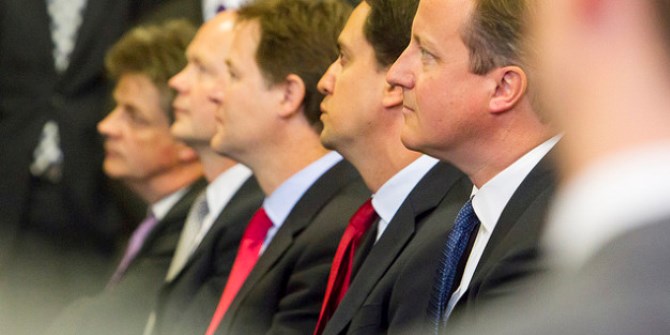 Failures in government policy creation and delivery are often blamed on civil servants. However, the real culprit is self-inflicted governance inadequacy, writes Andrew Kakabadse. He draws on his recent report to explain how the value of departmental boards is downrated because of the poor chairmanship of the Secretary of State.
Failures in government policy creation and delivery are often blamed on civil servants. However, the real culprit is self-inflicted governance inadequacy, writes Andrew Kakabadse. He draws on his recent report to explain how the value of departmental boards is downrated because of the poor chairmanship of the Secretary of State.
The Kakabadse report ‘Is Government Fit for Purpose’ surfaced the critical nature of the relationship between Secretary of State and Permanent Secretary in determining the quality of policy delivery. The investigation challenged the step-by-step, logical nature of public administration thinking and highlighted the idiosyncratic nature of the chemistry factor shaping the relationship between these two critical public service roles. In effect, the Secretary of State liking or disliking the Permanent Secretary shapes how policies are executed. This is particularly the case as the policy process identified emerges as 20% policy creation involving the electorate, parliamentary debate, and being grilled at the despatch box; and 80% policy delivery involving a behind the scenes exercise that ministers drive through, supported by their civil servants.
However, the relationship between minister and civil servant is not smooth. The minister’s exposure and need for urgency (due to their very public accountability) is countered by the civil servants’ evidence-determined shaping of reality of how to make policy work across numerous misalignments of interests in the community. Although both are rightly doing their job, through so doing they find themselves in a relationship of continuous tension, that being between urgency versus reality.
In order to work through such contrasting complexity, the Kakabadse investigation showed the value special advisers and the Departmental Board can play in the effective execution of policy. Yet the investigation also identified problems with the functioning and contribution of the Departmental Board, with the greater majority of interviewees concluding that departmental boards add little value. The reason? Because the Secretary of State is the Chairman. Indeed, numerous non-executive directors disclosed they have hardly met their Chairman. It became clear that fulfilling the duties of Chairman of the Departmental Board was low on the priorities of numerous Secretaries of State. Even when the Secretary of State turned up, instead of leading the governance and oversight of policy delivery and all the parties involved, the board was focussed to examine the particular political perspective that troubled the Secretary of State on that day. Worse still, certain Secretaries of State, as Chair, sacked the whole board and placed their own people.
 Pixabay (Public Domain)
Pixabay (Public Domain)
Yet at the individual level, external non-executive directors emerged as highly valued. Their advice to the ministerial team and civil servants was rated as highly worthy: their commitment to the Secretary of State was evident and their experience was appreciated even more. The stewardship offered at the level of the individual board member made a difference. Despite over 34% being not paid and the remainder considerably underpaid, the individual non-executive directors’ desire to provide for the sound governance of government was paramount. When asked why such a level of commitment, the answer came back as ‘to give something back’. The sense of public service predominated, especially so because departmental boards are advisory.
Yet despite all the efforts of certain non-executive directors, the overall governance contribution of the board was viewed as inadequate. Whatever individual non-executive directors did, the board as a body could not establish its independence, and the particular agenda of the Secretary of State became the focal point of the governance of government.
The Kakabadse team at Henley Business School has conducted separate studies in order to examine what went wrong with organisations that derailed, typified by Marconi, RBS, HBOS, Carillion, and Kidds Company. Two reasons emerged: the inadequate leadership of the board by the Chair; and the board losing its independence to challenge the CEO and the management team. So many corporate collapses could have been prevented had the board defended their independence and the Chair appropriately led the board to provide challenge and oversight, and particularly hold the CEO to account.
In order to reverse the inadequate governance of government, the report strongly recommended that the Secretary of State stepped down from being Chair of the Departmental Board; in their place, an independent, external Chair should be appointed. In turn, the report emphasised that the Secretary of State should be the Chair of Chairs, drawing together the contribution of the ministerial team, the Permanent Secretary and civil servants, the Special Advisers, and the Departmental Board. The aim is to strengthen the Secretary of State and through so doing have the citizen receive better service from their government.
The reaction to the Kakabadse report to date has been to reject this particular recommendation and continue with the Secretary of State as Chair of the Departmental Board. The logic is that the Secretary of State would be weakened by stepping down and once that happens, the Departmental Board loses all significance. Aside from the fact that departmental boards are already viewed as having little significance, government is the only body in the UK to institutionalise an inadequacy of governance. The collapses of Marconi, HBOS, and other enterprises were down to the poor leadership of the board and it being unable to stand up and challenge the management and their strategy. The lesson is clear: lack of board independence and poor chairmanship are fundamental to governance going wrong.
However, these derailed organisations did not build into the fabric of their governance, poor board leadership, and no board independence. In contrast, the UK government of today is the only institution that is determined to pursue the false belief that the Secretary of State, as Chair of the Departmental Board, provides sound governance oversight. To ignore governance is one thing, as witnessed in the case of past corporate collapses. To bypass governance altogether because the Secretary of State feels sensitive about the subject is something else. Today’s inadequate governance of government encourages the unfortunate scapegoating of civil servants by the Minister and allows the unsubstantiated complaint to take hold that civil servants pursue a different direction to their political master.
Sound Government is central to the future of the UK. It is deeply troublesome that this vital institution is the only one in the country to have created a governance that has structure, but no substance. The Windrush generation and the Amber Rudd resignation fiasco is simply a warning of policy distortions that are yet to come.
_________
 Andrew Kakabadse is Professor of Governance and Leadership at Henley Business School. He consults and lectures in the UK, Europe, United States, Asia, China, Japan, Russia, Georgia, the Gulf States and Australia. He is currently embarked on a major £2 million global study of boardroom effectiveness and governance practice, with the participation of a number of governments including British Ministers of State. His top team database covers 17 nations and thousands of private and public sector organisations.
Andrew Kakabadse is Professor of Governance and Leadership at Henley Business School. He consults and lectures in the UK, Europe, United States, Asia, China, Japan, Russia, Georgia, the Gulf States and Australia. He is currently embarked on a major £2 million global study of boardroom effectiveness and governance practice, with the participation of a number of governments including British Ministers of State. His top team database covers 17 nations and thousands of private and public sector organisations.
All articles posted on this blog give the views of the author(s), and not the position of LSE British Politics and Policy, nor of the London School of Economics and Political Science.








The problem with your proposal is that it does not fit with the British Constitution. Authority is effectively invested in the Minister and de facto their is no higher authority other than the electorate – who in principle act as a board. Whilst what you say may be sensible it cannot happen without a radical change in the constitution. It is worth looking at David Judge’s book, The Parliamentary State.
How does this structure differ from other countries?
The observation “ ……. the policy process identified emerges as 20% policy creation involving the electorate, parliamentary debate, and being grilled at the despatch box; and 80% policy delivery involving a behind the scenes exercise that ministers drive through, supported by their civil servants” made above is very close to reality.
However, one must add the words “and heavily influenced by outside interests” right at the end – because surreptitious lobbying is what oils the machinery of government!
In the UK, there used to be a forum bringing together senior politicians and industry leaders to discuss the most pressing needs of the economy – it was called the Business Advisory Group.
This body was disbanded by the this Prime Minister immediately upon entering 10 Downing Street because:
(a) It had been high-jacked by big business who were using it to contrive situations which would, in effect, shield them from having to ‘feel the heat’ of competitive market forces.
(b) Big businesses were exploiting the special relationship with government to construct regulatory moats, secure public spending to serve their own narrow business interests, or bend specific rules to their will and in the process, stifle competition.
Another key reason for doing so was that the Business Advisory Group only served to facilitate clandestine political engagement between the governing elite and big business, with no room for the voice of the unrepresented many, like small and medium-sized enterprises to be heard.
In so doing, the Prime Minister sent out a strong signal that she will look upon SMEs much more favourably, when deciding how to spend public funds – because they offer flexibility & adaptability, original thinking & niche expertise, bring long-term commitment and exhibit a sense of patriotic responsibility towards British workers in a way others have not. After all, SMEs are the lifeblood of the UK economy and should rightly be given equal access to publicly-funded contracts which have hitherto, been monopolised by the Select Few.
It is considered a necessary evil in well-functioning democracies for big business to lobby agencies of the State to try to skew the rules of the game in their favour – which they achieve through clandestine political engagement.
Defence Contractors are accomplished practitioners in the art of clandestine political engagement, also referred to as behind-the-scenes lobbying. Instead of employing talented engineers, problem-solvers, innovators and doers, they prefer to engage expensive parliamentary lobbyists so that they can deploy these people to swing the decision on down-selection, by circumventing MoD’s weak competition process – where it matters most, in the corridors of power using arguments that have nothing whatsoever to do with the qualities of the equipment being offered!
Which would explain why the Defence Industry has failed so miserably to deliver equipment to the Armed Forces which is fit for purpose, adequately sustained in-service and constitutes value for money through-life, for as long as anyone can remember.
It should be noted that the big players in the UK Defence Industry, the Select Few, don’t even bother to submit written evidence to parliamentary inquiries into Defence Procurement (an issue which has a profound impact upon their business prospects), because they consider secret, “back channel” access to the Executive a much more effective way of continuing to influence policy – with the objective of keeping it skewed in their favour.
This is, as good as any other reason, for draining the swamp!
@JagPatel3